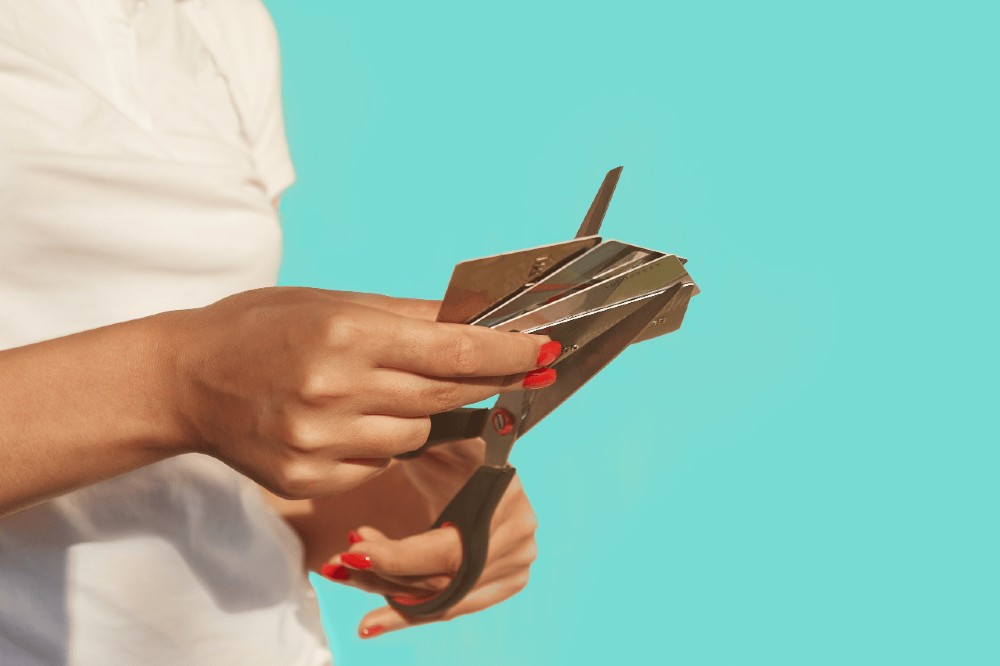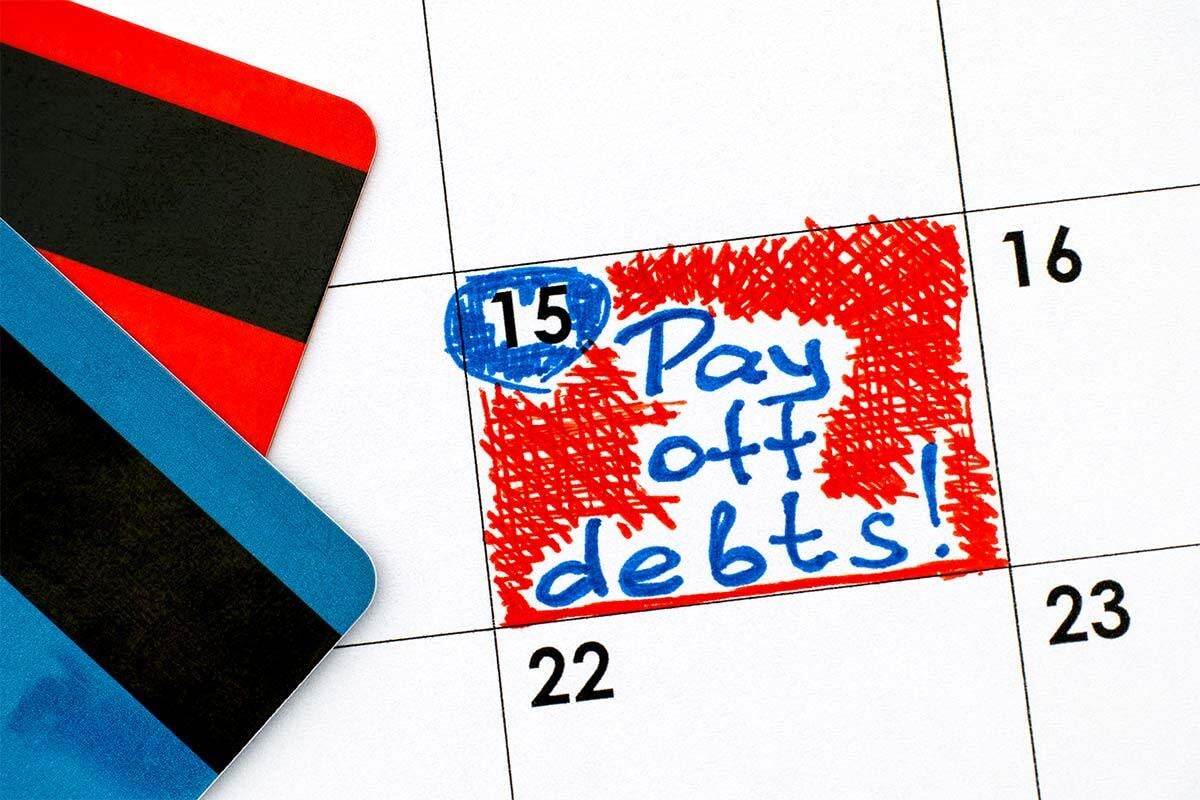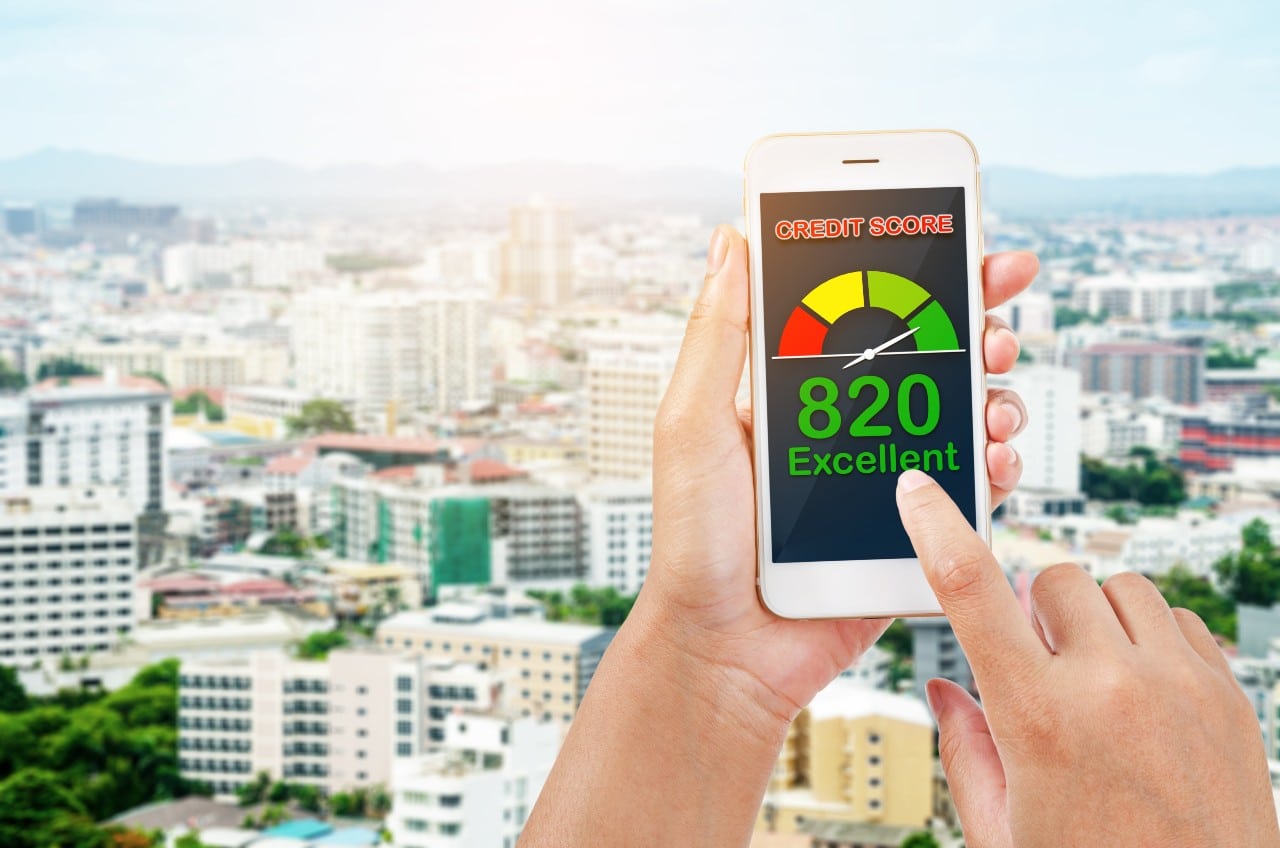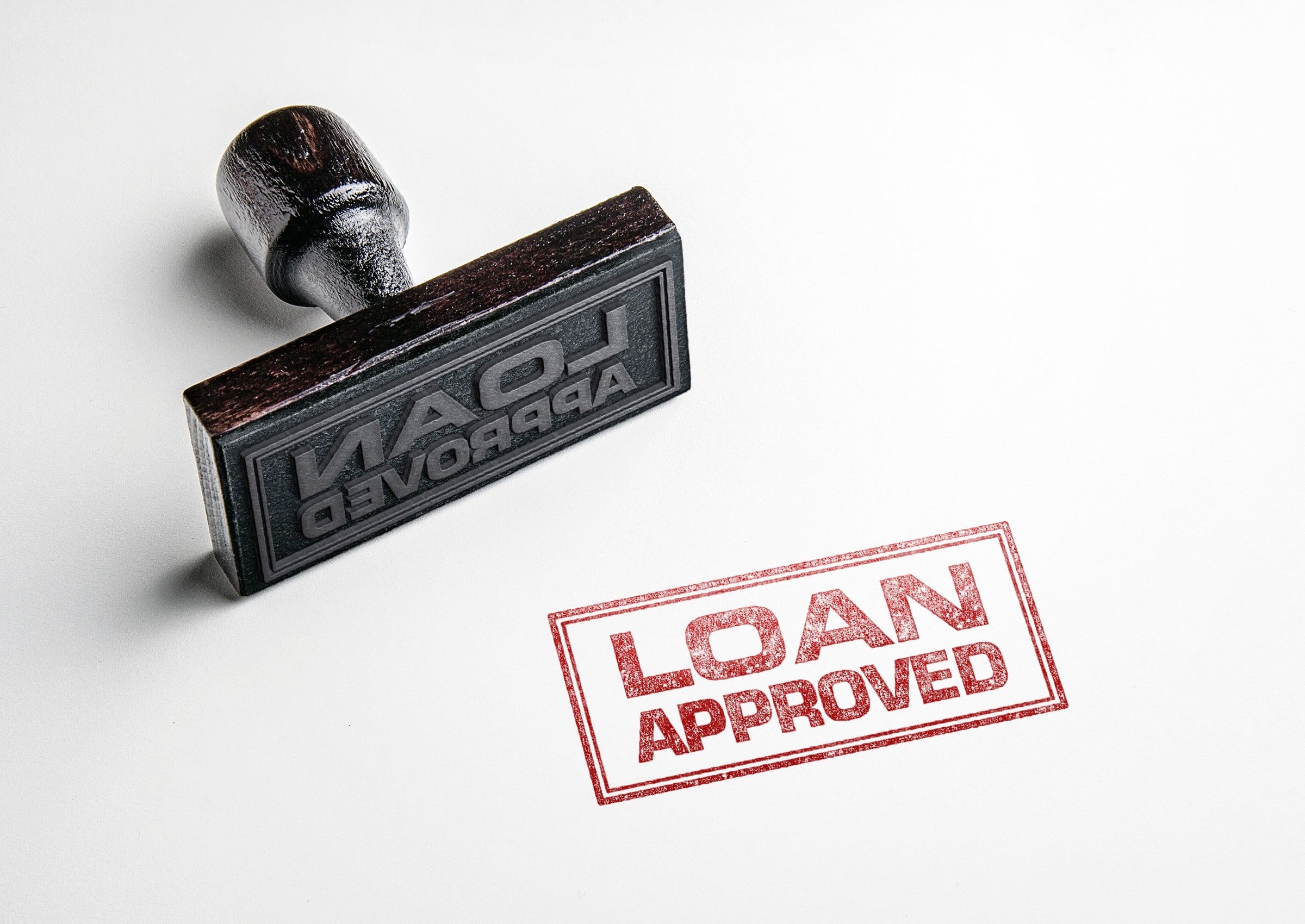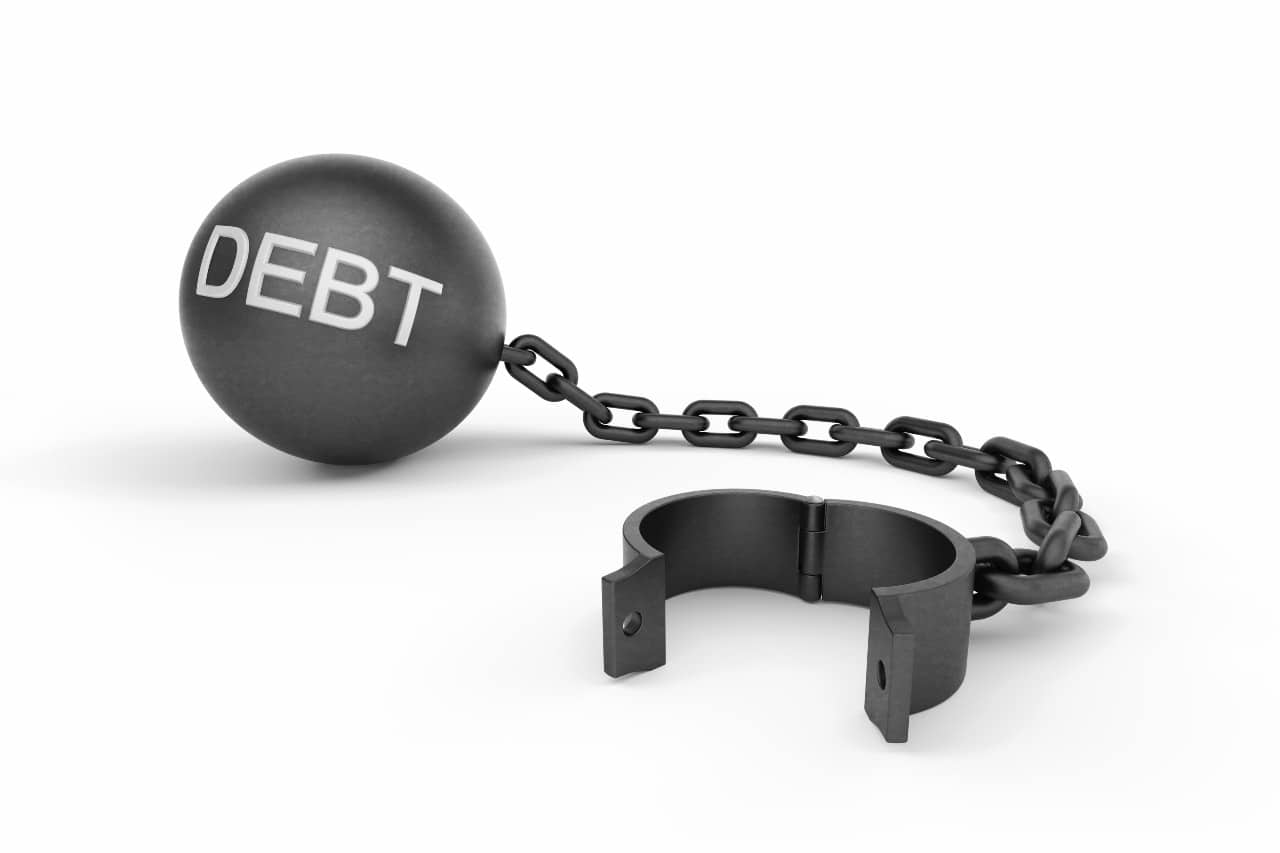How did you end up not having a credit card? Perhaps you declared bankruptcy and had to surrender your credit cards. Maybe you made a deal with yourself that you wouldn’t use your credit cards until you paid them off. Whatever the reason, it can be difficult to live without one. Credit cards a practically a necessity. Many transactions happen online now and many merchants, like hotels and car rental agencies, require a credit card.
The Canadian Bankers Association (CBA) reports that 95% of adults in Canada have one or more credit cards, over 76 million credit cards in the country. They also report that about 5% of household debt is a credit card balance (that includes mortgages!) It wasn’t all that long ago we had a cash-based society. Credit cards only gained popularity in the last 50 years. So now, Canada ranks second in the world for cashless transactions.
The Evolution of the Credit Card
It used to be that everyone could live without a credit card. Established in August 1968, Canadians used “Chargex,” credit cards which eventually became Visa. The Bank of Montreal added Master Charge in 1970, which evolved into MasterCard. By 1977, Canadians had 8.2 million credit cards, spending over $3.1 billion on credit every year. Fast forward to 2021, Canadians now have 76.2 million cards in circulation and spend an average of $2,205 a month on their credit cards.
Tips for successfully living not having a credit card
There’s no question that using credit has become the norm for many financial transactions in Canada. Some people don’t even carry any cash anymore! Yet, a growing personal finance trend is moving back to cash or at least to non-credit-based plastic because of the interest rate.
Here’s how it’s done:
Plan and Budget
The better your financial plan and budget you have, the more solid a foundation you’ll have in place. Budget for your regular expenses, like rent and car insurance. Also, consider your occasional bills. For example, put some money away every month for clothes, over and above what you spend on rent and groceries.
Perhaps you need to tighten your belt for a while to get ahead. In which case, you may not need to put anything aside for clothes if you are only budgeting for a few months. Just be sure to take time to think about these occasional purchases as you make your budget. That will ensure you’ll have a decision you can rely on when you face the temptation to overspend. Make decisions beforehand to limit impulse buying and overspending.
Save and Plan for Expected Needs and Big Purchases
If you’ve surrendered your credit cards because of bankruptcy, you might have more freedom now that you aren’t making high debt payments. This is the time to create an emergency fund and start saving for big purchases.
Put aside the money for your car maintenance and repairs before the car is due for service. Set up a vacation fund, so you can rent a hotel room to relax, if even for a few nights. This might even be the time to set up that garage sale you’ve been meaning to have. Or maybe sell a few things online for some extra cash. It takes planning to pay for bigger purchases, not having a credit card.
Use a Debit Card
You can use debit cards for most daily purchases. Buy groceries with your debit card, so you can keep track of your spending online and not go into debt. Also, keep yourself from wasting time by carrying a valid ID with you when you use debit cards. Some merchants may ask for your driver’s license.
Watch your bank account balance online carefully. Make sure you have an adequate balance in your account or set up a bank app that lets you make a quick transfer from your savings accounts anytime. For example, if you need to rent a car, the rental company may hold funds in your bank account to cover both the estimated rental fees and a security deposit.
You’ll want to keep a close eye on your balance to avoid going into overdraft too. Overdraft fees can add up quickly. They can also impact you financially in other ways. Having excessive overdraft will be part of the consideration when it comes to applying for loans. Unpaid or excessive overdraft has been known to cause a drop in your credit score as well.
Get a Secured Credit Card
A secured credit card works by you depositing funds with the credit card company, and they give you a credit card with the same limit. For example, if you deposit $500, you have a $500 credit limit. You can only spend the amount you already deposited. If you default on payments the credit card issuer takes the money from your deposit. This is an ideal solution for our society today because so many transactions happen online and require a credit card.
The big advantage of secured credit cards is that they are a great way to rebuild your credit history. Secured credit cards show up as credit cards on your credit report. When you pay the bill on time, each payment builds your good credit score.
Get a Prepaid Card
A prepaid card is a little different than a secured card. For both, you deposit money before you can spend anything. The difference is that you use the balance you paid on a prepaid card. You’re, essentially, moving your money from one account (or form) to another. With prepaid cards, there is no creditor involved.
For example, if you load $500 onto your prepaid card from your chequing account, the available balance goes down every time you make a purchase. You need to reload the card to bring the balance back up. It’s practically the same as a secured credit card, but you can get perks like cash back. The only downfall to prepaid cards is that they don’t help with rebuilding credit history.
Get Creative
Without having a credit card in your purse or wallet, you may need to get creative. Call ahead or check merchant websites to see what other payment options you have. With so many Canadians choosing to not rely on credit cards, many merchants have creative ideas. You may find they accept PayPal or something similar.
Consolidate Your Debt
You have several choices when you have credit card debt. One is debt consolidation. When you consolidate your debt, you usually end up with lower monthly payments at a lower interest rate. This leaves more of your paycheque available for current expenses and savings. Your debts are combined, so you only make one payment. It’s best to get help from a professional to negotiate the best deal possible.
Need Help?
If you wish you had more debt relief, we have experts ready to help. Contact us to start your journey to better credit and less stress today!
